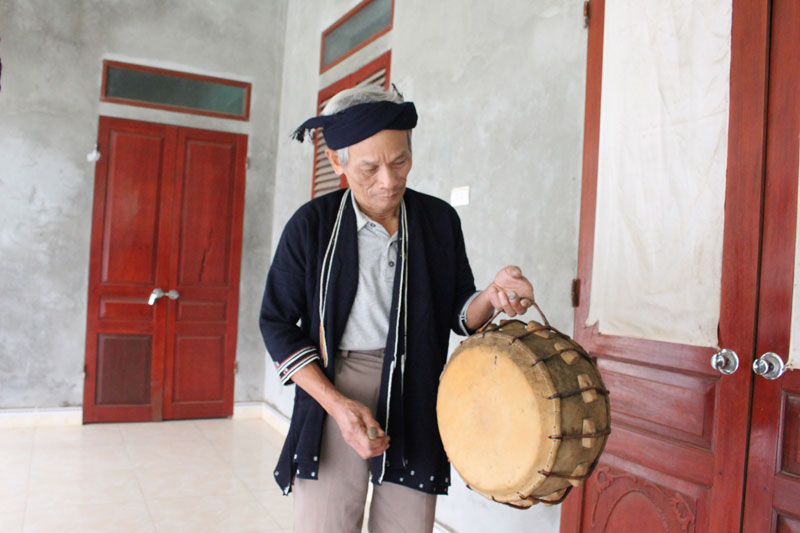
(HBO) – Dao ethnic people in Toan Son commune, Da Bac district, Hoa Binh province, make up 43.3 percent of the commune’s total population. Their unique spiritual and cultural values are vividly illustrated in the housing architecture, customs, costumes, festivals, folk songs, and traditional dances.
Dao
people in Toan Son commune mainly live in Phu, Ranh, and Cha hamlets. One of
their most special traditional cultures is "cap sac” (maturity ritual)
ceremony, which is considered an indispensable ritual for ethnic men because
only when they are declared the coming of age, they have right to involve in
the village’s work. Boys from ten years above could pass this ritual. The most
valuable thing in this ritual is teaching. The sharman will have teachings to
the matured men so that they will not do evil and have to respect their
parents. The teachings are done by vows under the witness of gods, heaven and
earth, ancestors and before all people in the family.

Mr. Dang Tien Dung from Cha hamlet, Toan Son commune
(Da Bac), prepares musical instrument for Tet Nhay (dancing festival).
Dao people always attach great important to
ancestor worshipping and Tet Nhay (dancing festival) is a special ritual.
Every day, Dao people from Toan Son commune wear
traditional costumes including a shirt, pants, belt, silver jewelry and a
headscarf. Women’s shirts are usually knee-length. With the skillful hands and
diligence, Dao ethnic women create colourful costumes.
Women weave and dye fabrics, then skillfully embroider and decorate patterns
which are close to the nature and represent their wish of a prosperous life.
Besides, Dao ethnic people are always aware of
preserving their scripts through teaching young generations. From 2016 to
present, Toan Son commune has opened three Dao language teaching classes.
Traditional dances of Dao ethnic people are performed in public in the
district’s events./.
The People’s Committee of Lac Son district held a ceremony on April 28 to receive the provincial relic certificate for the ancient rock carving site at Suoi Co stream, located in My Thanh commune.
A special music show titled "The country is in the fullness of joy” has been held at Hoa Binh Square in Hoa Binh city in celebration of the 50th anniversary of the liberation of the South and national reunification (April 30, 1975–2025).
The People's Committee of Lo Son commune, Tan Lac district, has organised the local annual traditional stream fishing festival on April 19 - 20.
As a land deeply intertwined with human history and Vietnam’s millennia-long journey of nation-building and defence, Hoa Binh is often revered for its epic tales and legends.
Residents of Hoa Binh boast a rich cultural identity, reflected in their unique language, traditional attire, customs, and folk melodies – described as "sweet as honey, clear as a mountain stream.”
Lac Son district’s Vu ban town held the 2025 Truong Kha temple festival on April 12–13 (the 15th–16th days of the third lunar month). Since its revival in 2019, the festival has been organised every three years, preserving valuable intangible heritage while meeting the community’s cultural and spiritual needs.



